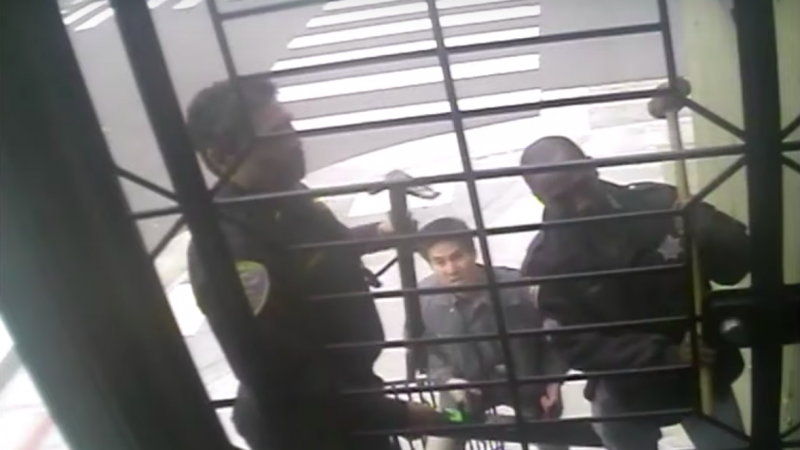San Francisco Police Got a Warrant to Monitor a Journalist's Phone Before Raiding His Apartment
The move is an assault on the First Amendment.

The saga surrounding the San Francisco police department's raid on journalist Bryan Carmody's home took another twist last week when it was revealed that local law enforcement also obtained a warrant to monitor his phone.
Carmody attracted national attention when police officers, armed with sledgehammers, smashed their way into his apartment, handcuffed him, and confiscated his electronic devices after he declined to name the source of a leaked police report. A freelance journalist, Carmody sold the police report surrounding the death of Jeff Adachi, the city's public defender, to three of San Francisco's news stations in late February. Carmody's company, North Bay News, follows stories overnight and peddles the corresponding information and video footage to local television outlets.
The police raid likely violated the state's Shield Law, which protects journalists from having to name a source. That law also excludes certain items from being subject to search and seizure, meaning that the warrant obtained to monitor Carmody's phone was probably illegal too.
Signed by Judge Rochelle East of the San Francisco County Superior Court, it allowed law enforcement to retrieve all of Carmody's "subscriber information, call detail records, SMS usage, mobile data usage and cell tower data" from February 22 until February 23, the pivotal period surrounding the death of Adachi. It also permitted further "remote monitoring" on the phone "day or night." The warrant does not mention the fact that Carmody is a journalist.
The leaked police report in question caused quite the stir when it first made its way into the hands of local reporters, culminating in the frenzied police raid on Carmody as the cops sought to pinpoint his source. As I wrote back in May:
The police report about the death of Adachi—whose reputation was defined by his penchant for criticizing the police—provided gossipy fodder for San Francisco's local news in late February. Laden with a string of scandal-ridden details about his final moments, it said he had been with a woman who wasn't his wife in an apartment that had "cannabis gummies," "empty bottles of alcohol," as well as an "unmade bed"—the latter of which was widely publicized with photographs. The salacious and often irrelevant specifics, later leaked to several journalists, sparked speculation that the police department was looking for the last laugh against the city's top public defender, who wasn't exactly known for making their jobs any easier.
Police Chief William Scott first doubled down on the raid, but later apologized, suggesting that his staff failed to identify Carmody as a journalist on warrant applications. That accusation set off a new round of he-said-she-said allegations, with the San Francisco Police Officers' Association claiming it was Scott who concealed Carmody's profession. The police union has since called for the police chief's resignation.


Show Comments (80)